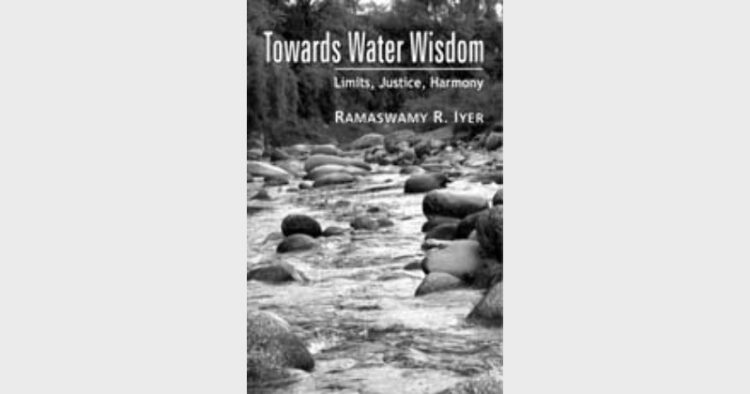
Save water, save life?
By Manju Gupta?
Towards Water Wisdom: Limits, Justice, Harmony, Ramaswamy R Iyer, Sage Publications, Pp 270, Rs 350.00?
None can deny that a water crisis looms large on the horizon as water is an exhaustible resource. The demand for fresh water is likely to increase sharply and rapidly because of the growth of the population, the pace of urbanisation and the process of economic development. The presence of the available (finite) supply, already acute, is likely to become more severe, leading to conflicts between users, user groups, areas, political units and so on.
The author makes a fervent plea for an urgent and radical transformation of our views and thoughts on water, because the projected water crisis is one of management rather than of scarcity, calling for a more equitable, harmonious and sustainable management of the resource.
If the water crisis is viewed as one of availability, it would mean increase in availability of water for use, that is bringing in more of the quantum of available water in Nature into the ’usable’ category through “supply-side solutions in the form of big projects.” In the World Bank’s language it implies additional water infrastructure.
Another answer favoured by World Bank is establishment of water markets which entails “definite water rights that allow trading”. What it means is withdrawal of government intervention and involvement of private sector which will attract necessary investments, prices will be right and conflicts will get resolved.
This means that water will depend on supply-demand where water is regarded as a tradeable commodity. In this scenario of a clear division between the ones who argue for big projects, for private investments, for water markets, etc. and those who favour local, community-level action and civil society initiatives and are worried over the loss of natural resources to the domestic corporate sector and the multinational companies, the crisis is not one of availability but a crisis of gross mismanagement, at least in the Indian context and globally, a crisis of rapacity. He examines the inadequacies of India’s water laws and policies and makes for a constitutional declaration on water and a national water law.
(Sage Publications India Pvt Ltd, B1/I-1 Mohan Cooperative Industrial Area, Mathura Road, New Delhi – 110 044; www.sagepublications.com)













Comments